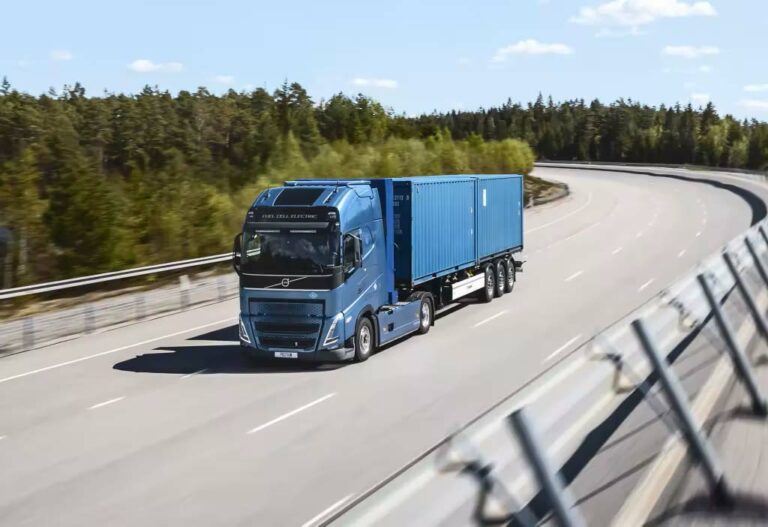Clean Air Zones And UK Logistics:
A Commercial Brake or Environmental Essentials?
The announcement that Sheffield is to become the latest city to announce it will introduce Clean Air Zone (CAZ) has sparked further heated debate in the haulage and logistics industries. While most CAZ impose blanket charges for all types of vehicles, the entry costs for HGVs, trucks, and vans are higher. Some zones, such as those in Bath and Bradford, only charge vans, minibuses, trucks, and lorries. Entering these zones can be expensive. Drive an HGV into Bristol’s CAZ, and it will cost you £100.
Given the challenges that the UK’s haulage, logistics, and trucking industries face, what with a shortage of drivers, high vehicle costs, and high levels of fuel duty, are congestion zones a step too far or a necessary one on the road to net zero?
In this latest blog from Coversure Castle Donington, one of the UK’s leading independent van, fleet, and truck insurance brokers, we’ll consider this question. Are CAZs going to drive more haulage, truck, and couriers out of business, or are they an environmental essential that will be the catalyst for a green logistics revolution? Let’s look at the evidence.
Clean Air Zones: A Commercial Brake?
Increased Costs
Adding £100 to a run just because you have to enter a city with a CAZ is a big expense. For hauliers and logistics firms running truck fleets, it can be a real headache. While it’s true that trucks do add to the UK’s air pollution levels, overall, HGVs account for just 19% of the total, according to the Department of Transport. Despite this, they are charged significantly more than cars which contribute 52% of emissions.
Charging The Most Needy
Targeting trucks and lorries is unfair in another respect; need. Central and local government has spent billions improving cities transport, and individuals can now choose between trains, trams, the underground, or park-and-ride buses in order to access city centres. Hauliers and couriers don’t have this luxury. Try taking 10 tonnes of building materials or 70 parcels on the bus, and you’re going to run into problems.
This need also helps keep cities’ economies going. Be it a supermarket requiring daily deliveries of food or construction sites requiring materials for new developments, the haulage and logistics industries are what keep things moving. Post-pandemic, we’ve all seen how disruption to supply chains can cause havoc, and if hauliers are either forced to up their prices or are driven out of city centres entirely, that’s bad news. At best, retailers will be forced to up their prices as transport costs rise – something we definitely don’t need in the current cost of living crisis – and at worst, things simply won’t get through. Yes, firms can look to deliver to hubs and have courier vans do the last mile for them, but vans are charged around £9 in many CAZ (far more in London’s Ultra Low Emission Zone), so this is shifting the cost to another commercial vehicle user. It would also entail the use of multiple vans to carry what one HGV did and would send emission levels spiralling making it a self-defeating expense.
The question of need is cited by many as a reason why councils feel they can charge so much to HGV drivers. Construction, haulage, and logistics companies need to use these vehicles, and they need to access city centres. This means, to use the economic jargon, they have an inelastic demand when it comes to trucks, lorries, and vans, so even if they are charged £100 a time to enter a CAZ, they’ll pay it as they have no choice. So why not charge non-essential users such as car drivers a premium instead? After all, they contribute 52% of the emissions and drive them onto public transport instead?
Hurting The Haulage Industry
And sticking with the economy, the UK courier industry is worth £13bn according to Shiply, and the UK haulage sector is worth over £128bn (RHA figures). It’s the fifth biggest employer in the UK with 2.54m people working in it. Is this an industry that we want to disrupt?
Environmental Essential Or Revenue Raiser?
Finally, many in the industry question whether there’s any environmental justification or whether it’s just a source of revenue for cash-strapped councils. The latest Euro 6 lorries are recognised by Transport for London as compliant with the planned Ultra-Low Emission Zone, and modern lorries are efficient and quiet. Given the billions that manufacturers are putting into electric vehicles (EV) and hydrogen-powered trucks, it’s arguable that the truck industry is already doing its bit for the environment.
Clean Air Zones: Environmental Essentials?
Polluted Air Kills
Most agree that climate change is real, and even sceptics cannot deny the NHS’s figures that show how up to 36,000 people die each year as a result of poor air quality. Cities across the country are responding to public demands for better environments, and reducing the number of lorries on their roads is seen as a good way of doing this.
Lower Congestion, Lower Costs
There is, of course, a financial incentive. Transport for London’s figures show they netted £232m in 2021, money they have poured into public transport in order to make quitting the roads easier. Theirs has certainly worked in terms of reducing congestion and traffic. A C40 Knowledge report from December 2021 stated that in the first year alone, it reduced traffic by 30%, congestion by 38%, and increased bus usage by 38%. Less traffic and less congestion means clearer roads and lower costs for hauliers, so it’s actually a win-win?
Not A Barrier To Construction
The construction industry is often mentioned when it comes to vehicle charging zones. Those using special types fleets and plant vehicles often need to operate in cities, and these zones are seen as a barrier to development. This is certainly a concern we’ve heard from our plant insurance clients.
The evidence for this is hard to find, however. Anyone who’s been into London in the past twenty years will know that the capital remains a hive of construction activity. While the ULEZ has reduced pollution by 26%, London’s construction industry is set to see growth of 3.2% between 2022 and 2026, according to a CITB report. To give that some context, the UK’s growth rate is predicted by the IMF to be 0.3%.
A Driver Of Technology
Necessity is the mother of invention, and nothing is going to focus the minds of truck, van, and truck fleet owners like raising costs. With CAZs offering exemptions for zero-emission vehicles, could their introduction hasten the development of EV and hydrogen-powered vehicles? We’ve already seen the EV revolution take root with our fleet insurance clients, so why wouldn’t the same apply to trucks? Yes, the technology isn’t widely available yet, but as we said in our blog on hydrogen-powered trucks, they are coming soon.
Clean Air Zones And UK Logistics
Commercial Chokes or Environmental Essential?
There’s no denying that the use of congestion zones is a problem for the UK’s truck and logistics industries. The sector needs more cost like it needs a rise in fuel duty, but they are here, and more are coming. In the short term, it’s a pain that will need to be borne, and firms will have to adapt and find ways to cut costs by using more environmentally friendly vehicles and larger loads. Couriers are in the fortunate position of being able to switch to EV now, while heavy goods vehicles and plant operators will have to wait for the technology to catch up. One thing that is clear is that there is a marketing opportunity here. BCG’s 2022 report stated that 57% of consumers care about a brand’s sustainability. If logistics firms can show this, they can not only reduce their costs but can increase their business.
Like Some Commercial Vehicle Or Truck Insurance Help?
If you’d like some help getting the fleet, truck, or plant insurance that’s right for you, then please get in touch. You can call us on 01332 320540 or email Coversure Castle Donington.




